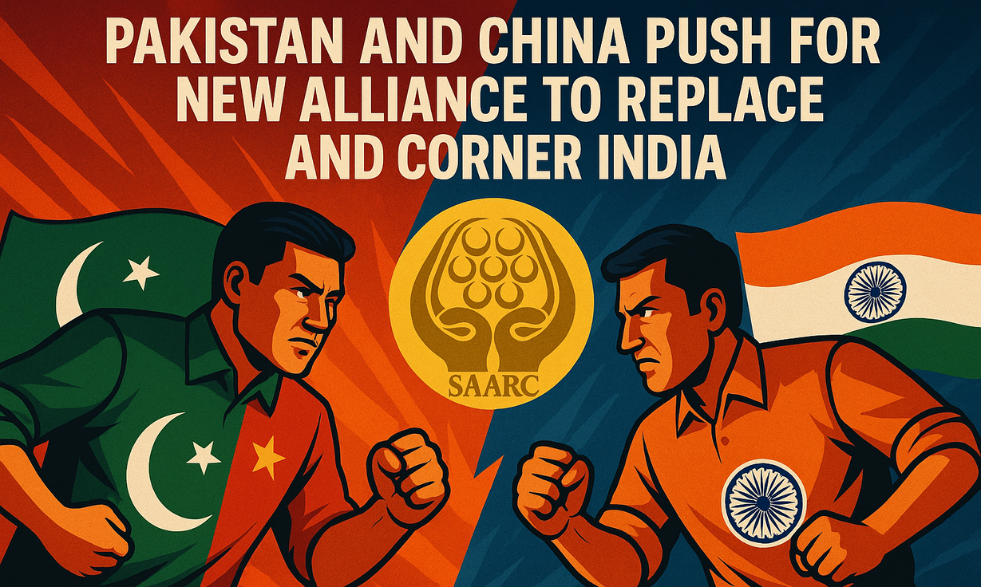Islamabad, June 30, 2025 – Pakistan and China are leading the initiatives towards the formation of a new regional grouping in a bid to replace SAARC, which has effectively been dormant since 2016 because of India-Pakistan tensions, a report published by Pakistan’s Express Tribune newspaper has stated.
The envisaged bloc aims to maximize regional integration, trade, and connectivity, with Bangladesh already being in talks.
Trilateral Meeting and Aims; Role of India
A recent trilateral conference on June 19 in Kunming, China, between Pakistan, China, and Bangladesh was a key step towards the establishment of this new alignment, according to media sources.
Diplomatic sources reveal that the effort intends to extend invitations to other members of SAARC, such as Sri Lanka, Maldives, Afghanistan, Nepal, and Bhutan.
India is also likely to be invited, although analysts indicate it would not attend as a result of strategic divergence with China and Pakistan.
SAARC’s Decline
The SAARC, established in 1985, was aimed at promoting regional unity and economic integration among its eight member countries: India, Pakistan, Bangladesh, Sri Lanka, Nepal, Bhutan, Maldives and Afghanistan.
But its success has reduced due to India-Pakistan tension, especially after India boycotted the 2016 SAARC Summit in view of the URI terrorist attack, as stated by India today.
Pakistan Foreign Minister Ishaq Dar recently highlighted the importance of a new platform for the convenience of “mutually beneficial cooperation” in South Asia, as per media reports.
Push for a New Platform
The new block corresponds to China’s largest Belt and Road Initiative (BRI), especially through the China-Pakistan Economic Corridor (CPEC), which can reach the east via Bangladesh, as noted in an op-ed by Eurasian Times.
It is being seen as a strategic move to combat Indian influence in South Asia, where India was traditionally dominating SAARC through initiatives like SAARC Development Fund.
Bangladesh’s Stand
Though Bangladesh’s foreign affairs adviser, M Touhid Hossain, dismissed the establishment of a political alliance, describing the Kunming meeting as non-political, though diplomatic sources cited by the newspaper suggested otherwise.
The new group plans to give top priority to trade corridors and infrastructure connectivity, which could reshape South Asia’s geopolitics.
Challenges Ahead
Experts, such as Dr. Farah Qureshi, warn that any substitute for SAARC would need to deal with regional tensions beyond India-Pakistan competition in order to be a success.
The project’s success would depend on other South Asian countries joining, and other nations such as Sri Lanka and Maldives would consider participation if there are economic benefits attached, according to media sources.
Will Pakistan and China replace SAARC? As talks advance, the proposed bloc may redefine the regional dynamics, upsetting current frameworks such as SAARC and BIMSTEC. But whether it can bring meaningful cooperation is unclear in the face of intricate geopolitics rivalries.
Also read:
- Shefali Jariwala “Kaanta Laga” Star Dies At 42
- Leaked Call of Duty Black Ops 7! What is Revealed so Far?
